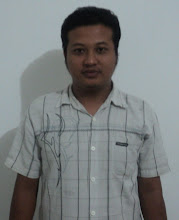- A fact that few know is that this alchemist and theologian of the seventeenth century, the inventor of one of the first synthetic dyes, he worked in the Castle Frankenstein, near Darmstadt, Germany, not clear whether the writer Mary Shelley was inspired by this character to create her famous novel. The truth is that Dippel spent much of his life in search of an elixir of immortality, and ironically died in the attempt to drink a potion of his invention.
- Rocket propulsion researcher at one of the founders of the Jet Propulsion Laboratory of NASA was also a believer in the occult and black magic practitioner. Part of the success of the space program of the United States is the work of this remarkable self-taught scientist. Friend of the 'wizard', English Alestes Crowley and L. Ron Hubbard, founder of Dianetics. Parson's tragic death in a home lab cemented his legend.
 |
| Jack Parsons (1914-1952)United States |
- It is known as one of the founders of modern theory of electrical circuits and vector analysis in electromagnetism, and his ideas are evident to this day. He almost won the Nobel Prize in Physics in 1912. He replaced the furniture in his house with stones of granite, was obsessed with chickens running over his bike, documenting what he ate, so he left detailed accounts in his diaries, he could make bowls and glasses of milk for days, suffering termofilia, fear of not being well covered for the cold. But the most bizarre was that he kept his sister Marry Way as his maid for 7 or 8 years, in a state of virtual slavery.
 |
| Oliver Heaviside (1850-1925)England |
- Although a respected scientist in his day, especially for his work with electromagnetism, is remembered for having 'discovered' the N-rays, "a new form of radiation that could never be proven and suspected it was a hallucination of his.
 |
| Blondlot Rene (1849-1930)France |
- Perhaps one of the most important inventors in history for his contribution in the development of the electricity industry (to him we owe the first practical use of the AC). The list of inventions (such as AC power generator, the induction motor, etc.). And ideas generated in life contrasts diametrically with his eccentricities. He never had a permanent home, as he preferred to live in hotel rooms where his demands were quite peculiar: he had a strange case of trifilia, a marked obsession that made him as daily for towels, pates or silverware in multiples of three. He left his hotel 3 times daily to go around the block and counted his steps, and always chose hotel room 207. He also washed his hands all the time, and had a terrible phobia of germs, and also developed an irrational fear of round objects. In addition, he experienced visual and auditory hallucinations. He came to regard pigeons as his only friends.
 |
| Nikola Tesla (1856-1943) Hungarian-US |
- A disciple of Freud and one of the reformers of psychoanalysis, his figure and work are still controversial. Although the creator of many theories in the field of psychology, he is remembered, perhaps unfairly, for creating the concept of orgone, a kind of vital energy that could be stored in a device he invented. This led him to prison by order of the Food and Drug Administration of the United States, who considered him mentally unstable. And ordered the burning of many of his books on the subject. He died in prison. Out of this incident, many of his ideas have influenced other creative minds.
 |
| Wilhelm Reich (1897-1957) Germany |
- With an IQ of 170, this brilliant mathematician specializing in geometric function, a graduate of Harvard. Considered a young genius, he had rather peculiar habits. He suffered a pathological shyness and hated human contact. At a level of living in isolation in a cabin in the word of Montana. He began a campaign of terrorism by the nickname of "Unabomber. He had the authorities on his trail for nearly twenty years.
 |
| Theodore Kaczynski (born 1942)United States |
- His brilliant career in biology broke down when he published an article establishing the existence of certain elements in the water was suggested that it was biologically "active. His experiments claimed that water was the "memory of substances that had been dissolved in it. He was declared a fraud by the scientific community.
 |
| Jacques Beveniste (1935-2004)France |
- This American microbiologist worked at the Research Institute of Infectious Diseases. In a 2001 bioterrorist attack with anthrax spores, he was one of the main suspects. Ivins committed suicide a few days before the FBI could file charges against him, so his apparent involvement in the events will remain a mystery.
 |
| Bruce Edwards Ivins (1946-2008)United States |
- Under the regime of Stalin, this character led the agricultural science in the former Soviet Union. He claims the concept of Lysenkoism, a campaign against the genetic theory that was maintained for thirty years, arguing that this was contrary to the Marxist concepts and calling it a "bourgeois science". this model is currently interpreted as submission of science to the political interests of the state.
 |
| Trofim Lysenko (1898-1976)Ukraine |






No comments:
Post a Comment